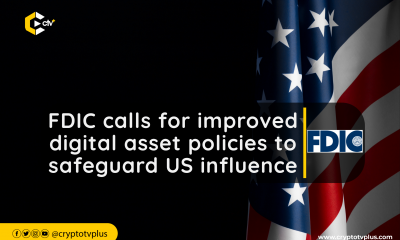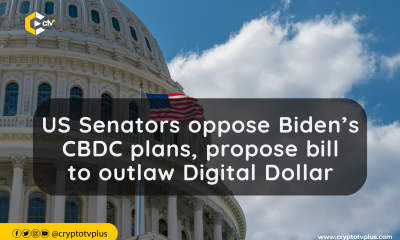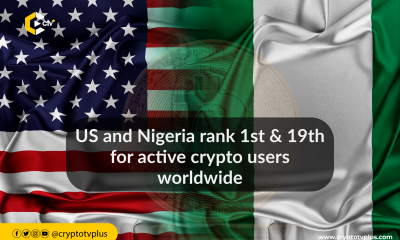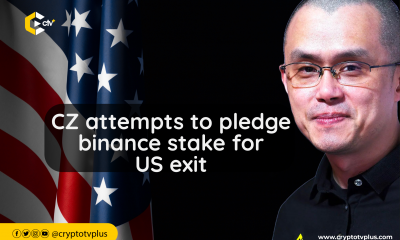FEATURED
Is the US ready to lead the digital currency revolution?
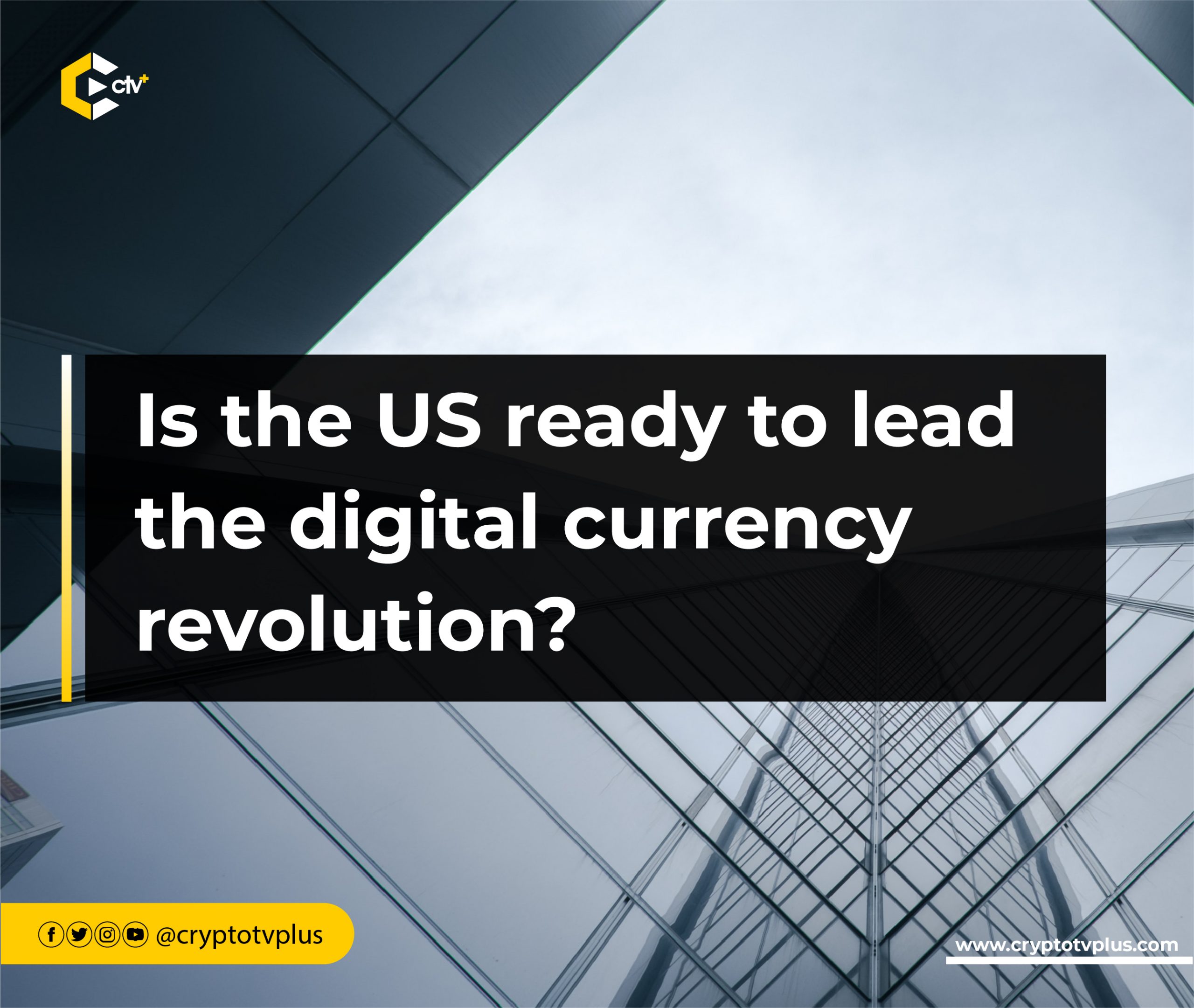
The United States is exploring the possibility of issuing a central bank digital currency (CBDC). This digital form of fiat currency would be similar to physical cash but would exist only in digital form. There are potential benefits to issuing a CBDC, such as making payments easier and cheaper, reducing fraud and counterfeiting, and promoting financial inclusion.
However, there are also potential risks associated with issuing a CBDC, such as, posing a threat to privacy, giving the government more control over people’s finances, and leading to inflation.
During a speech, at Consensus 2023, about how the US should pay full attention to digital currencies, especially the digital dollar and its underlying principles of operations, Chris Giancarlo, co-founder and executive chairman of the Digital Dollar Project as well as a former Chairman of the CFTC reaffirmed his stance that the existence of the digital currency is a reality no economy can ignore.
The Digital Dollar Project is a nonprofit organization founded in 2020 to encourage research and public discussion on the potential advantages and challenges of a U.S. Central Bank Digital Currency (CBDC).
A CBDC could offer benefits such as increased efficiency and convenience, enhanced financial inclusion, improved monetary policy effectiveness, and reduced risk of financial instability.
The Commodity Futures Trading Commission (CFTC) is an independent agency of the United States government that regulates the trading of futures contracts, swaps, and other derivatives. It was created in 1974 to protect market participants from fraud and manipulation, ensure the integrity of the markets, and promote market efficiency.
It has 677 employees and is led by five commissioners appointed by the president and confirmed by the Senate. The CFTC’s work helps to prevent fraud and manipulation, promote market efficiency, and protect market participants from harm.
Leading the global development of digital money
Chris believes that the US should not only give attention to the development of digital currencies but also lead the revolution globally. Explaining this, he added that while he was the chairman of the CFTC, the commission under his watch launched bitcoin [BTC] futures trading, which stands as the only legal, and fully regulated crypto product in the US.
He also noted that in the case of a digital dollar, which is being worked on by the Fed, it shouldn’t be a closed system. The Fed should implement a public-private method in the development of the country’s CBDC.
The official of the Digital Dollar Project hinted that the sensitivity of money makes it important for transparency and the sharing of ideas to get it right for the American people and the world in general.
He called on the leadership of the US to be proactive in leading and creating a global standard for digital currencies that will be available in the US and around the world.
The debate between CBDC and stablecoins
Furthermore, he pointed out that the debate between stablecoins and CBDC for the US is not necessary in any way. Stablecoins are cryptocurrencies that are designed to minimize price volatility and are backed by fiat currencies or other assets.
They can be used to store value, make payments, and access DeFi (decentralized finance) applications. Popular stablecoins include Tether (USDT), USD Coin (USDC), and Binance USD (BUSD).
He highlighted that the belief that a regulated stablecoin in the US will provide a good framework to protect user privacy is not yet a reality, as there is no guarantee for that even in the constitution. The entire world will be filled with both CBDCs and stablecoins, which will represent both sovereign and non-sovereign digital currencies.
He added that the debate between the two types of digital currencies should be replaced with the choice between financial freedom and financial control. Are we going to have new money that creates an open, more prosperous, and free society, or the opposite?
Advantages of digital currencies
Chris highlighted that the advantages digital currencies will provide for the US and the world at large are enormous. He mentioned the programmability, ability to be used for payment at all times, instantaneous settlement, low cost of operations compared to the currency system, and financial inclusivity as some of the reasons digital currencies should be adopted in the US and the world at large.
On financial inclusion, he noted that digital currencies can help governments implement relief systems similar to what happened in COVID-19, where the US had to send severance payments to its citizens.
Digital currencies will make this easier compared to using paper money as it is today. Just as railroad and telegraph technology in the 19th century enhanced and connected trade between North America, its fragmented regions, and the world, digital currencies can do more.
Concerns about digital currencies
The former chairman of the CFTC also told the audience at the event that there are concerns associated with digital currencies as well. At the top of the concerns is the convergence of data of users.
Digital currency will produce more data than has been seen before, which can be used to study its users and even attack them in various ways without their consent, which is a breach of privacy.
Talking about this, he praised the effort of Ron DeSantis, the governor of Florida, who raised concerns about such happenings in the US and how in 2022, Tom Emmer, a congressman, introduced a CBDC-privacy legislation.
He noted that on a global scale, the same scenario will play out as successful digital currencies will be points of creating and collecting data of users, and voters alike.
Way forward
As mentioned earlier, he called for partnership between public institutions and private institutions to create the best digital products that US citizens and the world can use. He also said that there will be more regulations to serve as a guide for already existing and to-be-released digital currency products that are and will be created by the private sectors.
The crusader for digital currencies also believes that the development of digital currencies will avail the state with the opportunity to reevaluate the current privacy systems used in the US.
Digital currencies that protect financial privacy in lawful transactions will be the world’s most desired, and the US can lead the way with free citizens, technological innovation, and political vision to create an unbound and inclusive financial future.
Read also;





